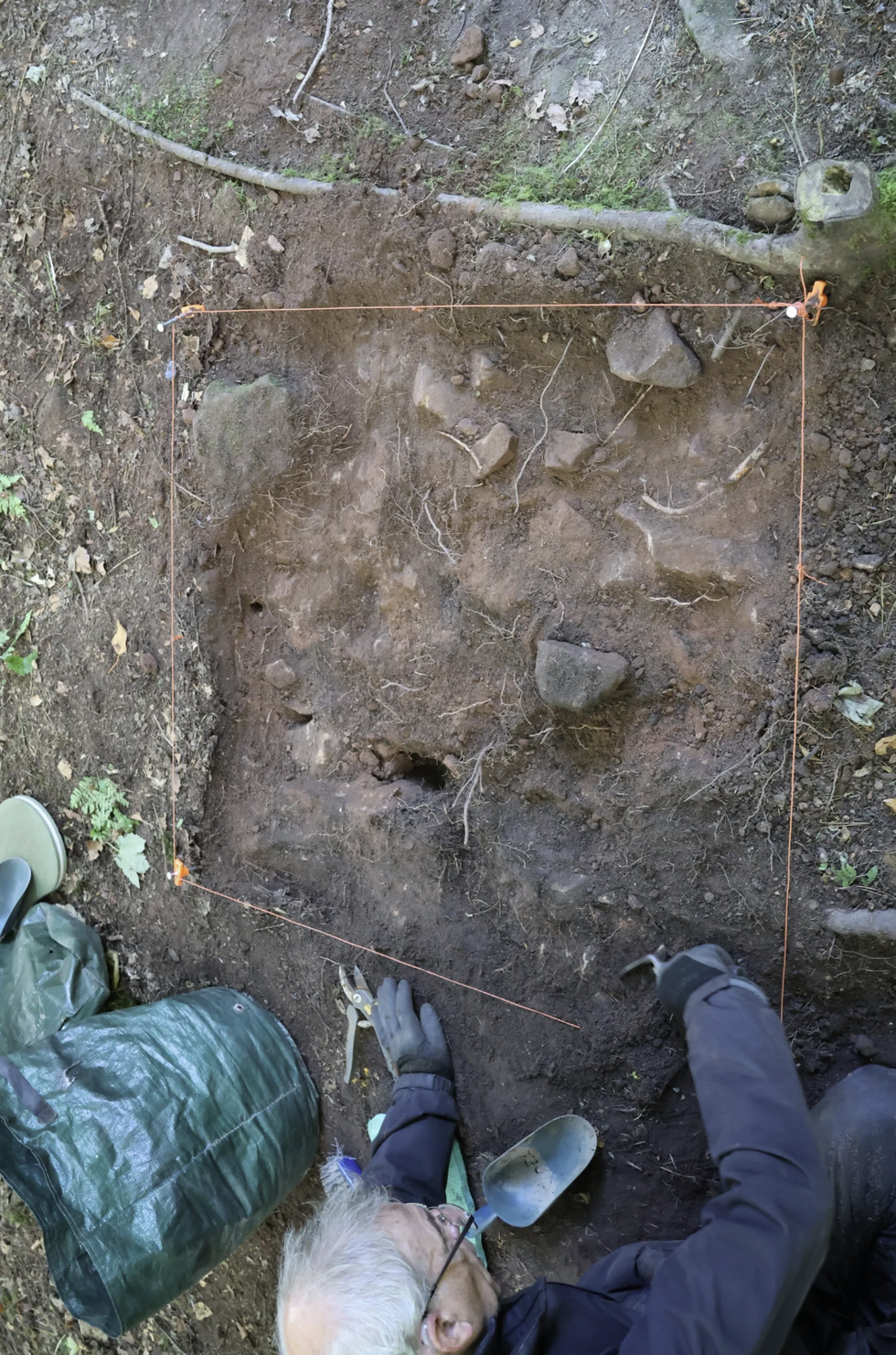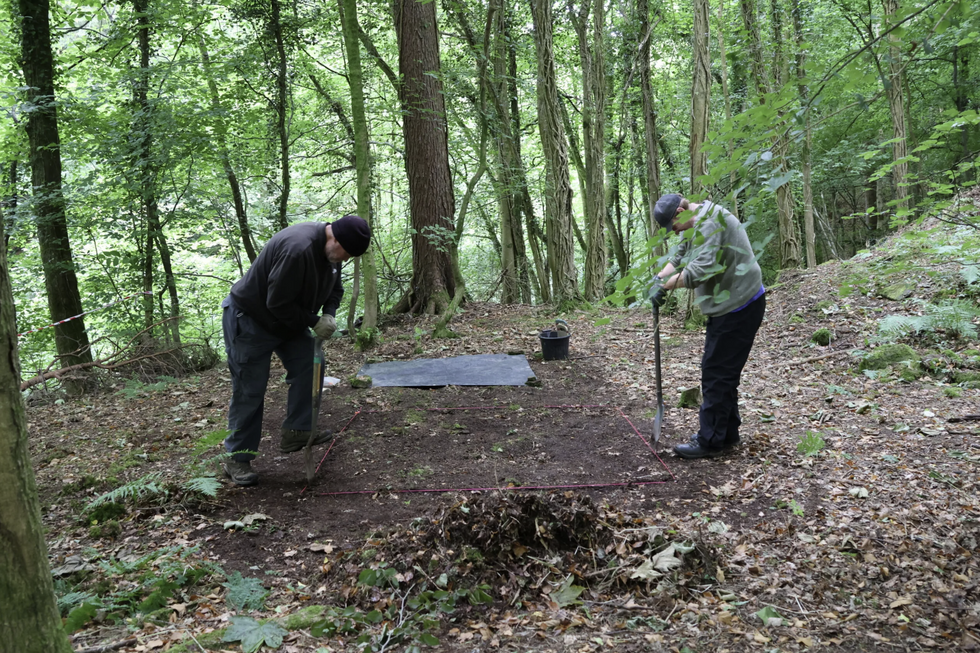Volunteer archaeologists in Scotland have made an exciting discovery that might lead to the location of the lost Eddlewood Castle, South Lanarkshire.
Earlier this year, the team from Clutha Archaeology Group conducted an excavation in Chatelherault Country Park forest near Hamilton in July.
Supported by experts from Archaeology Scotland and the Countryside Ranger Service, the group unearthed medieval artefacts dating back to the 14th or 15th century.
The findings, which include a cobbled surface, a possible drain, and pottery sherds, have sparked hope of confirming the castle’s location.

A cobbled surface, a possible drain, and pottery sherds have sparked hope of confirming the castle’s location
Clutha Archaeology Group
Eddlewood Castle, according to historical accounts, was dismantled after the Battle of Langside in 1568, fought between the soldiers of Mary Queen of Scots and those acting in the name of her infant son James VI.
The excavation is part of a broader effort to uncover Scotland’s archaeological heritage.
Looking ahead to the excavation’s future, co-founder of Clutha Archaeology Group Ailsa Smith said: “As the pottery sherds have been confirmed as medieval, we plan to carry out another excavation in 2025 to explore the site further and hopefully find more artefacts and wall remains.”
The group has planned to continue archival research to uncover earlier references to the castle and the wider Eddlewood estate.
LATEST ARCHAEOLOGICAL FINDS:
A promising lead has emerged from a local resident, who reported that the construction of a nearby housing estate fence disturbed cut stone blocks.
These blocks may have formed an outer wall of the castle, providing a new avenue for investigation.
The archaeological findings at Chatelherault Country Park are featured in the newly launched Celebrating Archaeology in Scotland 2024 magazine, which details the progress of archaeological projects across the country.
Speaking about its upcoming edition, chair of the Scottish Strategic Archaeology Committee Dr Andy Heald said: “These stories highlight the diverse nature of the sector and one of Scotland’s Archaeology Strategy’s core visions – inclusivity.”

A promising lead has emerged from a local resident, who reported that the construction of a nearby housing estate fence disturbed cut stone blocks
Clutha Archaeology Group
Head of Heritage Research Service at Historic Environment Scotland Alex Adamson has explained that archaeology helps to provide a better understanding of Scotland’s past and present, saying: “Archaeology brings alive Scotland’s past, helping us to better understand the world around us today.”
The Celebrating Archaeology in Scotland 2024 magazine is part of Scotland’s Archaeology Strategy, a 10-year initiative launched in 2015, which hopes to make archaeology “central to Scottish life” and create an open dialogue about its contribution to society.
As the current strategy reaches its end, focus has turned to look at the role that archaeology will play in the next decade.
Adamson added: “As we approach 2025, the current Scotland’s Archaeology Strategy is coming to an end and we look to the future.”
The magazine’s latest edition has addressed archaeology’s vital role in addressing key national goals, including the transition to net zero, empowering local communities, and building a wellbeing economy across Scotland.